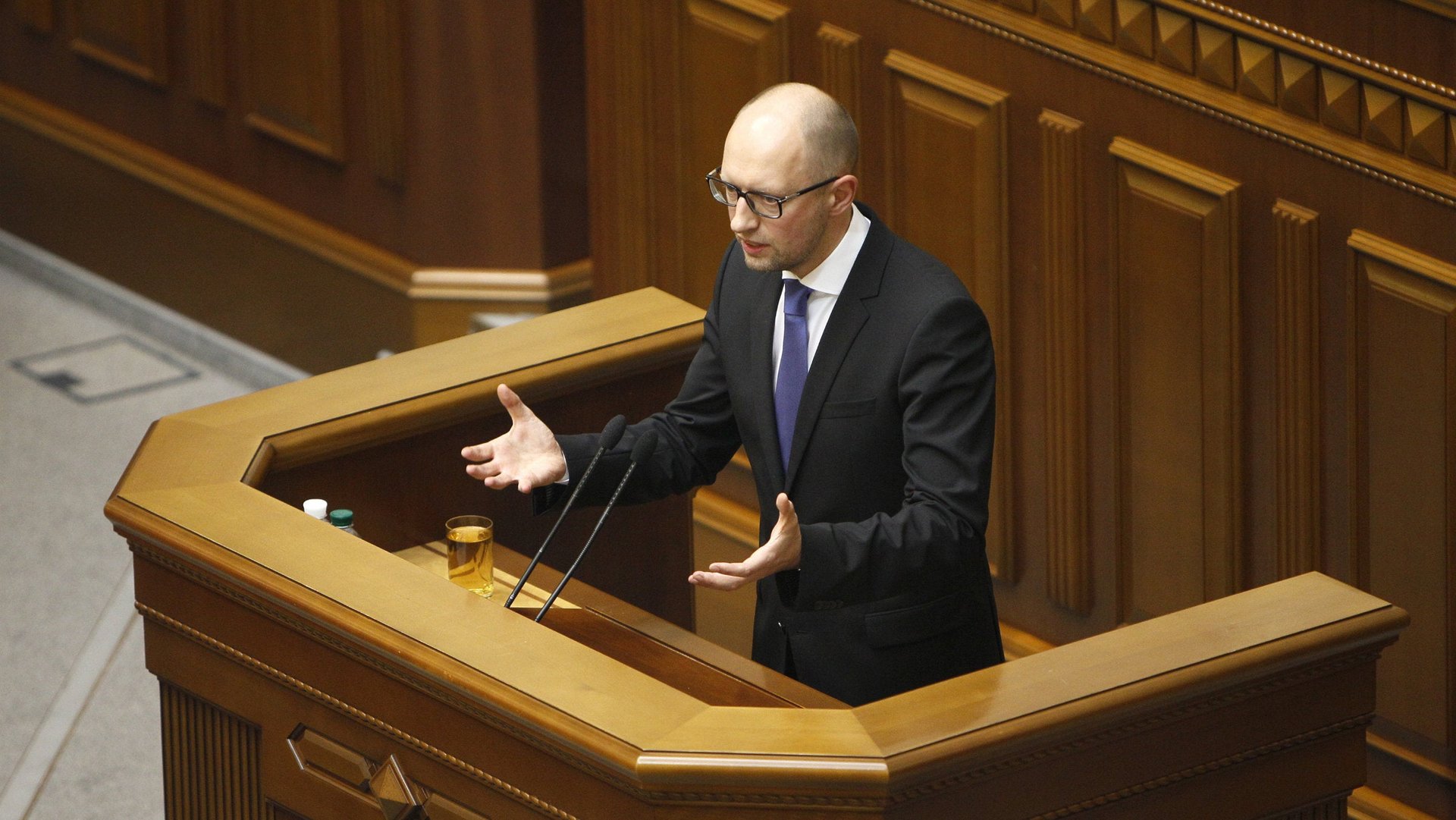Ukraine’s politicians have decided that their country could use even more turmoil right now
In front of lawmakers at the parliament in Kyiv today, Ukrainian prime minister Arseniy Yatsenyuk didn’t mince words:


In front of lawmakers at the parliament in Kyiv today, Ukrainian prime minister Arseniy Yatsenyuk didn’t mince words:
The fact is that the coalition has fallen apart, that laws haven’t been voted on, that soldiers can’t be paid, that there is no money to buy rifles, that there is no possibility to fill gas storages. What options do we have now?
Yatsenyuk “bellowed” and “berated” the chamber for its inaction—even if you don’t speak Ukrainian, his exasperation is clear—before tendering his resignation (pictured above). Earlier in the day, two of the parties in his governing coalition quit, both calling for early elections as soon as possible, likely around October. And so Ukraine is thrust into fresh political turmoil, alongside its many other problems.
Although the next parliamentary election wasn’t due until 2017, president Petro Poroshenko suggested that he favored calling a poll this year shortly after taking office last month. Still, after the downing of a Malaysia Airlines passenger plane amid a bloody rebellion in eastern Ukraine, the timing of the government collapse is inconvenient, to say the least.
The maneuvering “shouldn’t paralyze the work of the parliament,” Poroshenko said, rather hopefully, in a statement today. But one of the restive parties that quit the government today, former boxer Vitali Klitschko’s UDAR, said that a fresh election would be a “stabilizing factor” for Ukraine, arguing that a new poll would rid the parliament of the “fifth column” of pro-Russian deputies loyal to ousted former president Viktor Yanukovych, who are ”openly lobbying the interests of the aggressor—Russia.”
But as political parties’ campaign machines abruptly rev up, the unfinished business of passing budgets, equipping soldiers, and securing energy supplies that so enraged the outgoing prime minister may continue to languish. The gridlock in parliament was vividly illustrated yesterday, when one of body’s occasional bouts of fisticuffs between legislators broke out:
The timing of the government’s dissolution suggests that president Poroshenko and likeminded political parties think that conditions in the country will be suitable for an election a few months from now—that is, the recent offensive against the separatists in the east will be successful. Or, it could be that even if the fighting continues, making a vote in places like the self-proclaimed “People’s Republics” of Donetsk and Luhansk impossible, it doesn’t matter to the parties ahead in the polls.
After all, Poroshenko was elected in May amid fierce fighting in the east, with polling booths in Donetsk and elsewhere in the region non-existent, blocked, or very sparsely attended (link in Ukrainian). Election monitors described the vote in the east as featuring “forced evictions and closures of District Election Commissions by armed groups, abductions, death threats, forced entry into private homes and the seizure of equipment and election materials.”
Former president Yanukovych’s pro-Russian Party of Regions, which won 30% of the vote in the 2012 parliamentary election, is currently polling in the low single digits (link in Ukrainian). The parties at the top of the opinion polls overwhelmingly favor closer ties with the West. It seems assured that any election in the near future would cement these parties’ grip on the parliament. It would also give the Ukrainian people another outlet to express the deep divisions that are tearing the country apart.